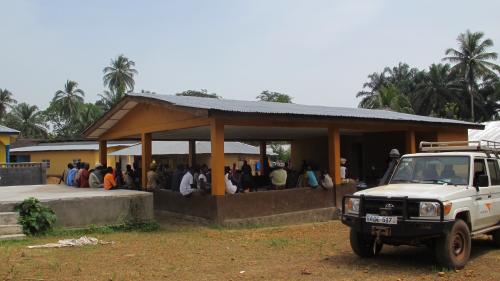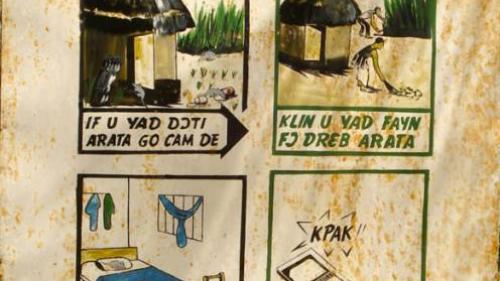Historically, risk communications activities have formed part of interventions aimed at translating scientific knowledge to encourage healthy behaviours groups who are at risk. Successful risk communication requires careful consideration of the content of messaging and the language used as well as the means of delivery. Risk communications and community engagement experts are usually part of public health institutions involved in long term work, like the Nigeria Center for Disease Control, or part of rapid response teams for epidemics.
In recent years, anthropologists have been part of response teams during epidemics, often employed to to analyse context - specific factors relevant for organising an effective response, and not only to listen to people but to work with communities as partners in the control of the epidemic. Social scientists tend to promote forms of communication that start from and respond to people’s needs, questions and concerns, rather than beginning with biomedical facts and thinking about how to communicate this information to different audiences. In particular, social science literature has been critical of risk communication responses that see behaviours, culture, tradition and rumours as something to control or fight against.
Social science research has also shown that some attempts to use community engagement as part of epidemic control have been problematic due to directive and unilateral approaches, for example seen in the ‘bushmeat’ ban during the west African Ebola epidemic, and when communities are referred to as “resistant” to disease control intelligence and apparatus. Anthropological and other social science approaches also opens up some wider questions in relation to community engagement including thinking about what the term ‘community’ means; who is part of the community; who are the members of the community beyond local and traditional leaders; and how can these people be engaged in disease control?





